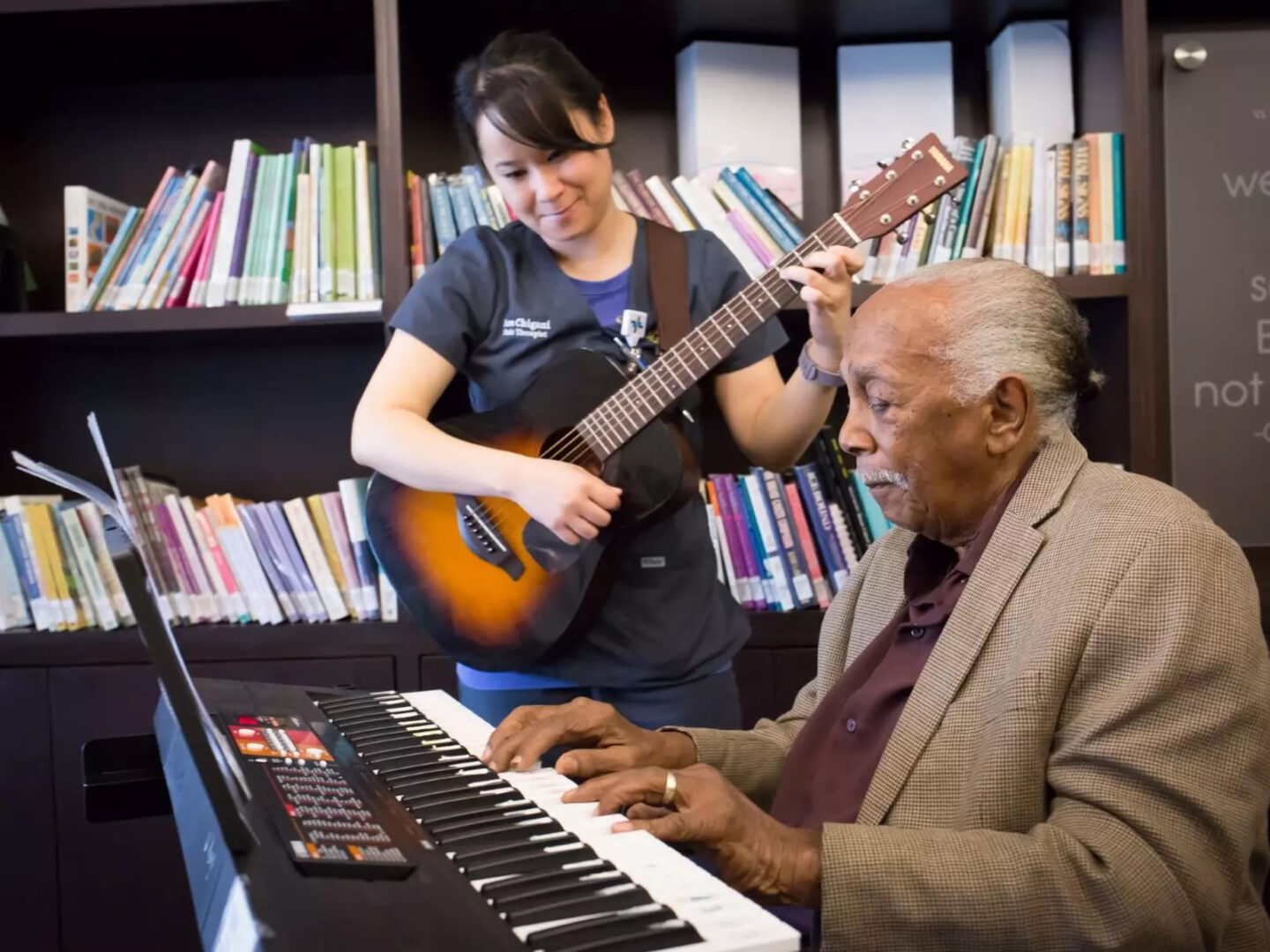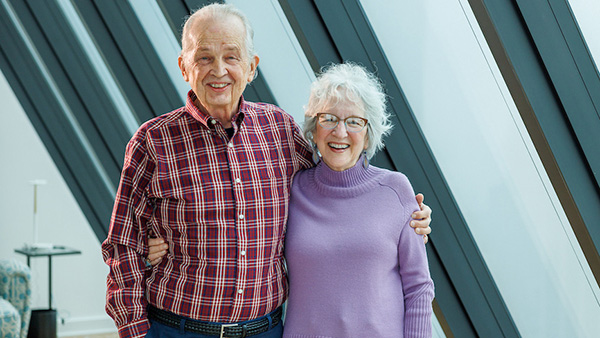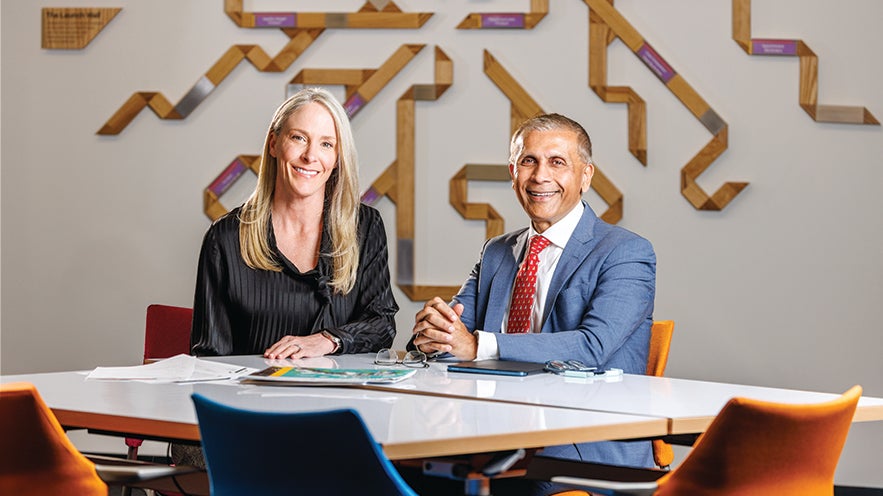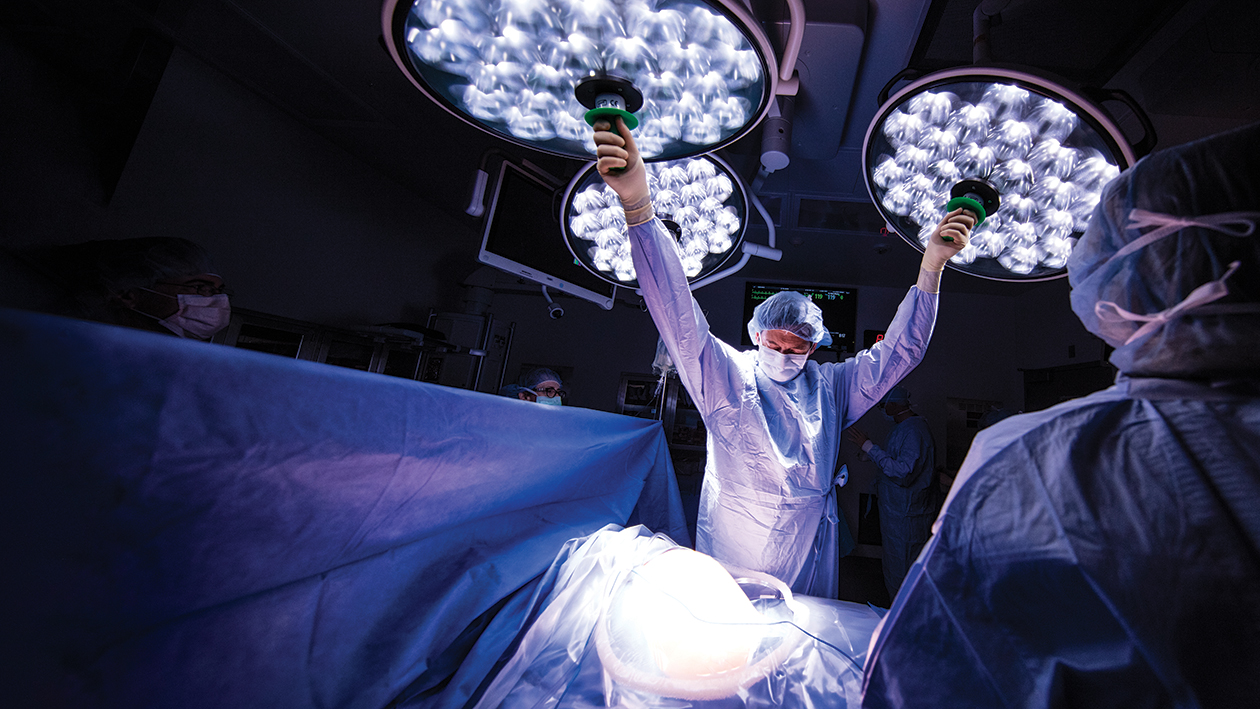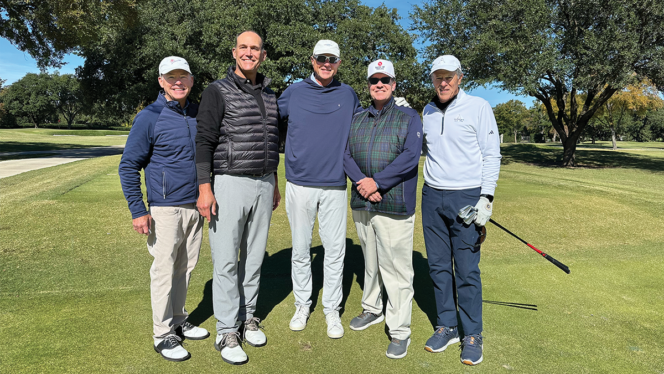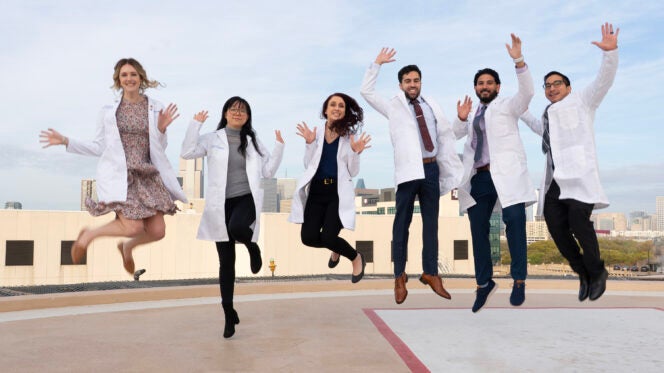In this Article
- Baylor Scott & White is a leader in organ transplantation. How did we get here?
- There is eagerness at Baylor Scott & White to think differently and push beyond status quo. How has that impacted your practice?
- How do programs like uterus transplantation help Baylor Scott & White make its mark on organ transplantation?
- Through philanthropy, how does Baylor Scott & White benefit from graduate medical education programs?
- How has Baylor Scott & White impacted the future of transplantation, through research, care and policy advancements?
In 2024, Baylor University Medical Center (BUMC) celebrated 40 years of life-changing transplant services. Since its start in 1984, the program has expanded to include a comprehensive team offering organ transplants and care for those with heart, pancreas, liver, lung and kidney disease.
In this Article
- Baylor Scott & White is a leader in organ transplantation. How did we get here?
- There is eagerness at Baylor Scott & White to think differently and push beyond status quo. How has that impacted your practice?
- How do programs like uterus transplantation help Baylor Scott & White make its mark on organ transplantation?
- Through philanthropy, how does Baylor Scott & White benefit from graduate medical education programs?
- How has Baylor Scott & White impacted the future of transplantation, through research, care and policy advancements?
To mark this milestone, we spoke with Shelley Hall, MD, and Giuliano Testa, MD—two physicians whose leadership has been key in shaping the program.
As the first heart failure transplant cardiologist at BUMC, Dr. Hall, chief of transplant cardiology, mechanical circulatory support and heart failure, joined BUMC at a time when heart failure-focused transplant programs were virtually unheard of. The program has evolved from a traditional surgeon-led model by expanding the role of heart failure doctors in transplant medicine, enabling a more collaborative approach. More than 1,230 patients have received a heart transplant at BUMC.
Dr. Testa, chief of abdominal transplant at BUMC and chairman of the BSW Annette C. and Harold C. Simmons Transplant Institute, leads the uterus transplant program—one of the first in the United States. This initiative has allowed women who were unable to carry children to experience
the joy of pregnancy and delivery, resulting in 25 babies born to 18 mothers.
In this conversation, Drs. Hall and Testa share how BSW’s culture of forward-thinking leadership and philanthropic support has driven innovations that expand possibilities in patient care, offering a second chance at life for transplant patients.
Baylor Scott & White is a leader in organ transplantation. How did we get here?
Dr. Testa: You need a strong infrastructure to succeed at the level that this program has throughout the years, and the mindset of our administrative leadership has always been to encourage exploration of: What’s out there? How can we bring something new and improve patients’ lives? How can we reestablish normalcy in the life of the patient?
Dr. Hall: Our program wants us to produce new science and research, which has allowed us to pull the strengths of a private clinical practice model and create a hybrid clinical and academic model. For example, we now have our own research team at Baylor Scott & White Research Institute focused on heart failure and transplant. Administration’s willingness to sit at the table and figure out how to make these things happen is a strong attribute.
There is eagerness at Baylor Scott & White to think differently and push beyond status quo. How has that impacted your practice?
Dr. Testa: The mindset at Baylor Scott & White is forward-looking. This is one of the first transplant programs in the U.S., and it’s always been a groundbreaking program where innovations have been brought to reality. Who thought that transplant and fertility [through uterine transplant] could go hand in hand?
Dr. Hall: An example of pushing the status quo has been our ability to better survey heart transplant patients for rejection. When I started, patients underwent invasive biopsies every two weeks for months, then monthly and eventually annually. I thought, there has to be a better way, so we got involved in the first gene expression profiling trial, which showed we could monitor rejection with a blood test. Over time, we reduced surveillance biopsies from about 20 per year to four and now one. This has dramatically improved patients’ quality of life.
How do programs like uterus transplantation help Baylor Scott & White make its mark on organ transplantation?
Dr. Testa: Uterus transplant is a culmination of a 40-year-long journey: Everything that was learned was used to create something that did not exist before. Today, Baylor Scott & White has the premier uterus transplant program in the world. We are the undisputed number one—not only because we have delivered more babies than anybody else, but also because we have contributed so much to the science behind uterus transplant.
Through philanthropy, how does Baylor Scott & White benefit from graduate medical education programs?
Dr. Testa: Supporting fellows within a surgical subspecialty is fundamental. These physicians not only bring new ideas and help you think outside the box, they go out into the world and create a ripple effect through their contributions and lives impacted. One day you go back and say, where did all this start? ‘It started at Baylor Scott & White because people invested in it.’ That is a legacy Baylor Scott & White is creating.
Dr. Hall: About 10 years ago, we launched our fellowship program at Baylor Scott & White with a passion for training fellows—not about the past, but about the future. As our heart transplant program grew, we sought out people with diverse perspectives to expand our team. The main challenge in this field is securing funding for training. My goal is to establish an endowment for the heart failure transplant training program, so we can dedicate our energy to educating and igniting passion in future leaders, rather than focusing on financial constraints.
How has Baylor Scott & White impacted the future of transplantation, through research, care and policy advancements?
Dr. Testa: With funding, we can have an impact in the way the distribution of organs occurs. One of my colleagues in abdominal transplantation, Dr. Anji Wall, does philanthropically funded work to advance transplantation separate from her clinical care.
She spearheaded a new way of donation in the United States, normothermic regional perfusion, a different way of approaching deceased donors that allows us to maintain organs in much better shape.
That’s given excellent results, and she’s became the point of reference for this in the entire country. That’s an example of how supporting education and academia gives tangible results and return on investment.

